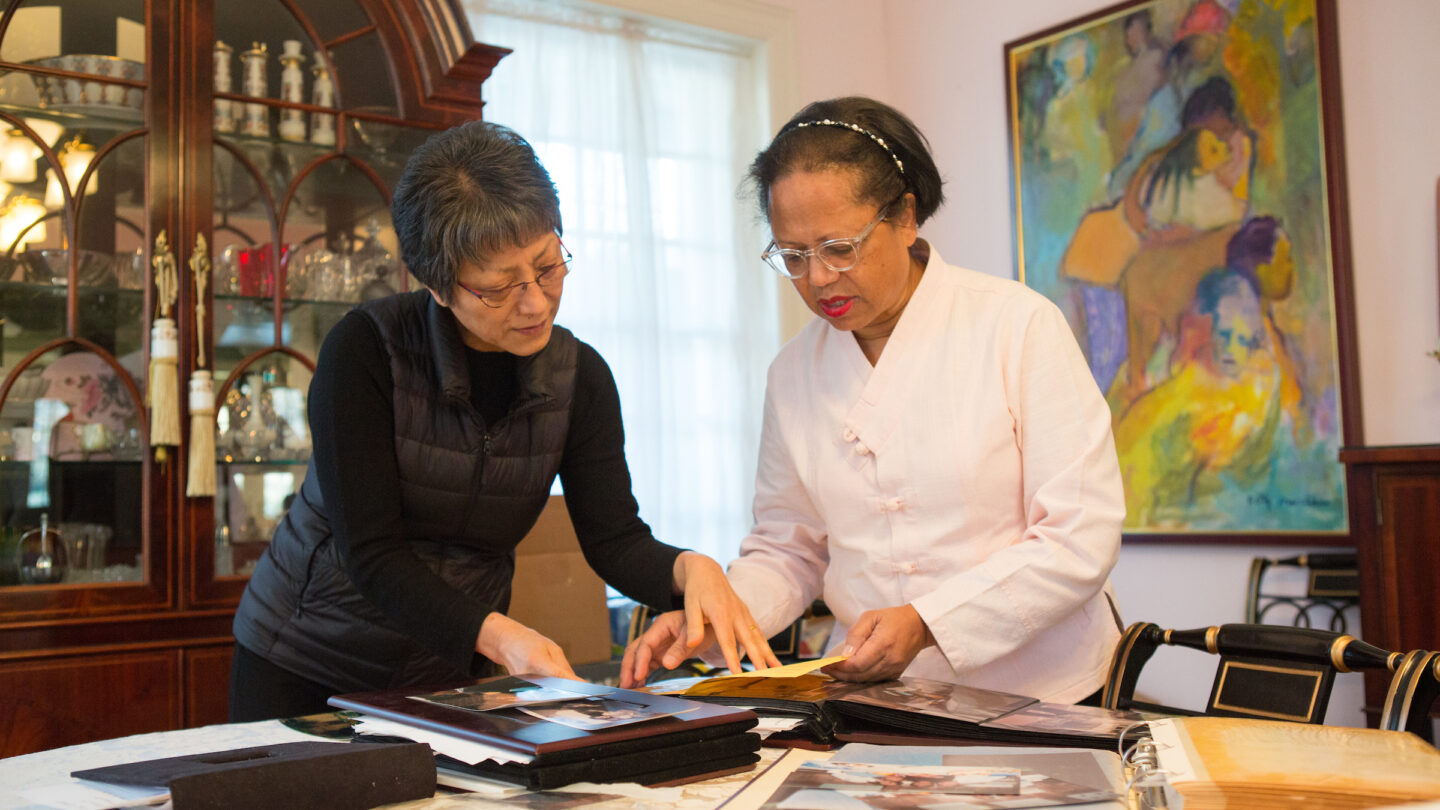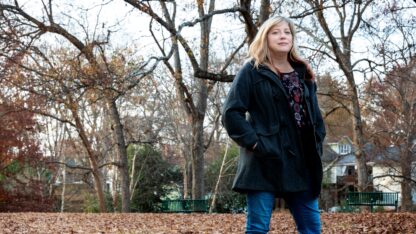After the Korean War ended in 1953, more than 100,000 children were orphaned in North and South Korea, which led to an influx of overseas adoption throughout the next four decades. The film “Geographies of Kinship” tells how South Korea became known for its global adoption program and the impact on those adoptees. The director of “Geographies of Kinship,” Deanne Borshay Liem, joined “City Lights” host Lois Reitzes via Zoom to talk about the complex emotional and practical realities of life as a post-war Korean adoptee. In celebration of Asian-American and Pacific Islander Heritage Month, the documentary will air on World Channel.
Interview highlights:
The director’s own story as a Korean adoptee:
“I was adopted by an American family in 1966,” Liem recounted. “When I arrived at the age of eight, I was essentially told that my father had died during the Korean War, and that my mother died giving birth to me, and that I had no living family anywhere; therefore, I was an orphan. So I grew up as a typical American kid in the suburbs of California, and because of, I think, the trauma of coming here at the age of eight and not being able to speak a word of English and not having anyone here who spoke Korean, I completely forgot about my memories in Korea — developed total amnesia.”
“It wasn’t until I was in college at Berkeley that I started having flashbacks, these sort of brief scenes of a little house in the hills, scenes of an orphanage with children, scrambling for shoes in the morning, those kinds of things,” said Liem. “At first, I thought they were dreams or residue of dreams, but slowly I realized that there was something to them … I discovered the letters to the social worker that my parents had been writing, the social worker who handled my case, and so she was still alive. I wrote to her, and six weeks later, she connected me to an entire family, my birth mother, my brother, my sisters, aunts, and uncles, and a very large extended family.”
The subject of Liem’s previous film, “In the Matter of Cha Jung Hee”:
“Part of my experience was that I had been switched with another girl. My adoptive parents had adopted a girl named Cha Jung Hee, and they were anxiously awaiting for her,” Liem explained. “She was an orphan … at the same orphanage that I was in, but her father decided that she would not be adopted and took her home with him. And the orphanage director at the time decided that I looked enough like Cha Jung Hee and basically put me in her place without changing the paperwork.”
“So my name was Kong Ok Jun, but that identity was completely erased. My picture was put on Cha Jung Hee’s passport and all of her documentation. So that was the confusion with my parents. They thought they had gotten this pure orphan with no family attachments in Korea named Cha Jung Hee, but I ended up being this other girl with a family. So in 2010, I decided that I would go back to Korea to look for the real Cha Jung Hee and see what happened to her.”
The adoptees of Liem’s films in historical context:
“I think it’s important to understand, the Korean War was the origin event, really of Korean transnational adoption,” said Liem. “The war was fought between 1950 and 1953. It was the first ‘hot war’ of the Cold War, and it was incredibly violent. The U.S. military carried out what many scholars refer to as a ‘scorched earth policy,’ destroying homes, crops, sometimes entire villages. So the devastation was acute and, needless to say, the loss of life profound. An estimated 4 million people were killed; 1 million Chinese and 3 million Koreans, the majority of them civilians. So this was the context in which Korean transnational adoptions emerged.”
“’Geographies of Kinship’ follows these four adoptees and their stories in the context of contemporary post-Korean-War history, and as such, I think that their stories connect back to South Korea, but of course to the United States … This is a history, not only of Korea, but it’s a collective history of the United States and our nation. And I think it behooves us to learn about this because it speaks to the human connection and the legacies of war that are complicated and that we need to understand as human beings.”
The premiere of “Geographies of Kinship” takes place on May 19 as part of the series “America Reframed” on the World Channel. More information on how to stream is available at worldchannel.org/episode/america-reframed-geographies-of-kinship.









